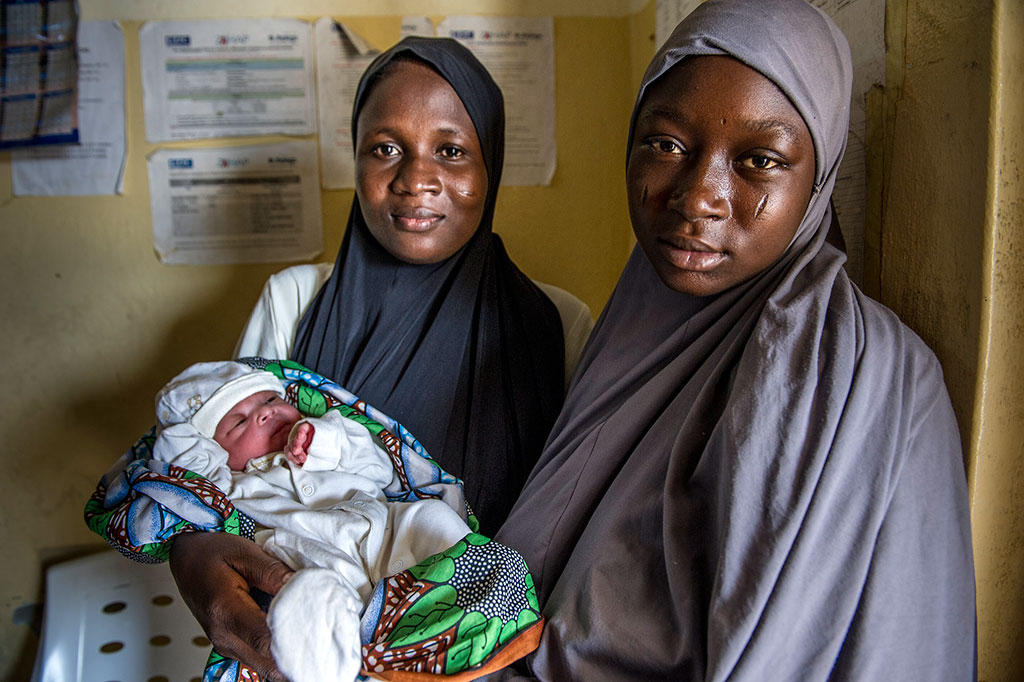Recently, I asked my mother why she never discussed sex with me. Her immediate response was: “Oh Sadie, we all knew you weren’t having any.”
She was referring to my “high fashion” adolescent period, complete with pegged jeans and turtle necks adorned by candy canes, when my hair was cut into a subtle mullet. But relying on the sheer force of teenage awkwardness is never a good way to prevent pregnancy.
And while discussions like the one with my mother – on sex and reproductive health – are personal and culturally specific, there are messages and services all girls should receive, regardless of where they live. This World Population Day, USAID’s flagship Maternal and Child Survival Program (MCSP) is celebrating successful efforts around the world to reduce unplanned pregnancies and to reach the 222 million women who want – but currently lack – family planning.
An announcement out of Colorado just this week highlighted the state’s strategic reduction of teenage pregnancy by 40%, from 2009 to 2013, by offering free long acting contraceptives to adolescents. But on the other side of the world, many teens are becoming mothers too soon because of early marriage, gender inequities and lack of access to reproductive health services. In the developing world, health providers often won’t discuss – let alone provide – contraceptives to teenagers without a parent’s permission. And teenagers who marry before they are 16 may not be physically or emotionally prepared for motherhood, and will suffer the consequences.
At MCSP, we have an interest in young, first time mothers, in particular. In Nigeria, for example, which has one of the highest rates of teen pregnancy, 23% of adolescent girls have begun childbearing. Moreover, adolescents tend to have less knowledge and use of contraceptives than older women. And while the national contraceptive prevalence is 16% and 9.8% of all married women using a modern method of contraception, only 1.2% of married adolescent girls do so. Adolescent Nigerian mothers are also less likely to use maternal health services.
Recently, policy makers and health providers from 16 countries gathered together in Thailand to build on a decade of work in postpartum family planning supported by the U.S. Agency for International Development. Staggeringly, those countries represented at the meeting will account for 62,568,534 births next year alone. At MCSP, we look at these numbers another way: more than 62 million births also mean millions of opportunities to counsel women and their partners before or after they give birth on family planning.
The reasons for non-use are complex, involving social, cultural and economic barriers, fears about side effects, and lack of access to a trusted provider. There is significant evidence, however, that greater access to family planning can be vital to achieving global goals in maternal health and child survival. If all women waited 36 months to conceive again, for instance, 26% of under-five deaths would be averted (Rutstein/Winter).
Helping youth delay pregnancy is as pressing a need in the developing world as it is in the pockets of the United States where the percentage of teen mothers is shockingly high. From Colorado to Thailand, we are all in this together, with the shared goal of ensuring that every girl and woman has access to long acting and reversible contraceptive.
To learn more about PPFP and ensure there are no missed opportunities, visit the PPFP Toolkit and register for the Community of Practice.

